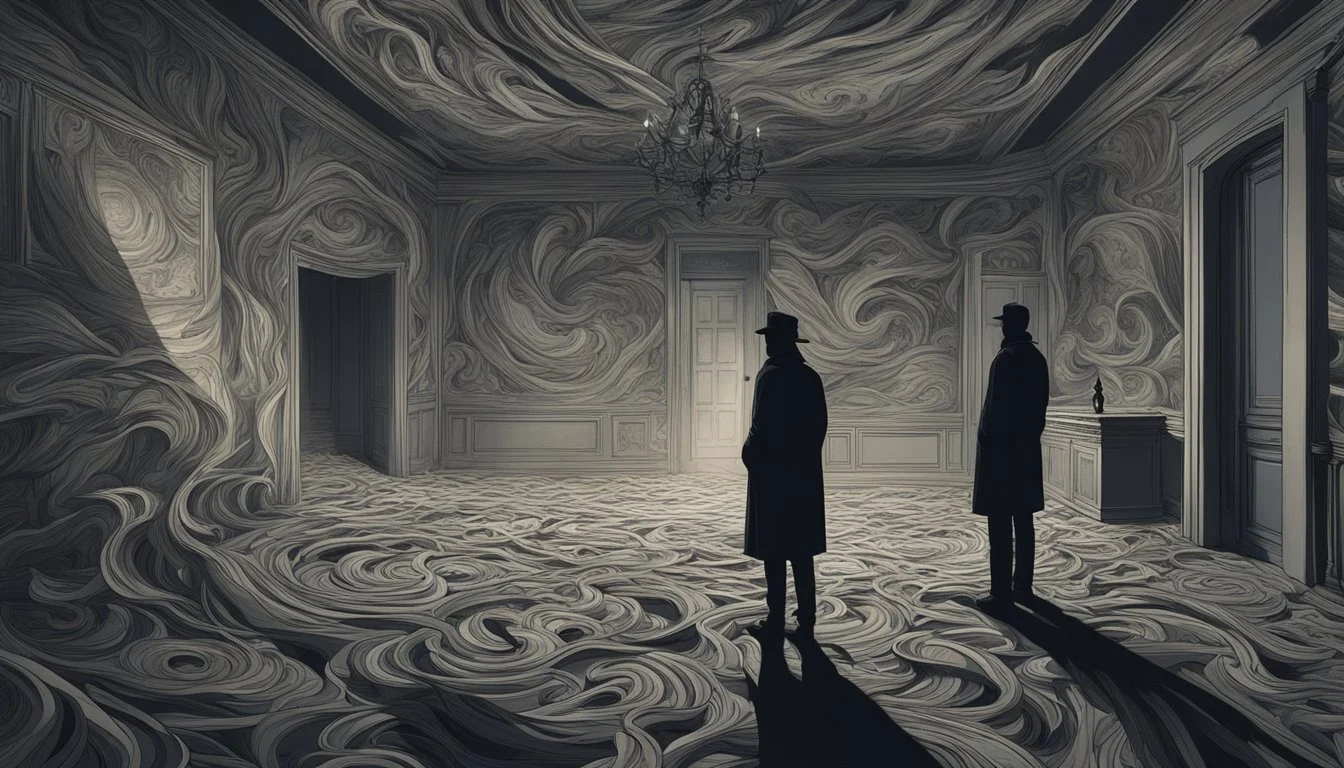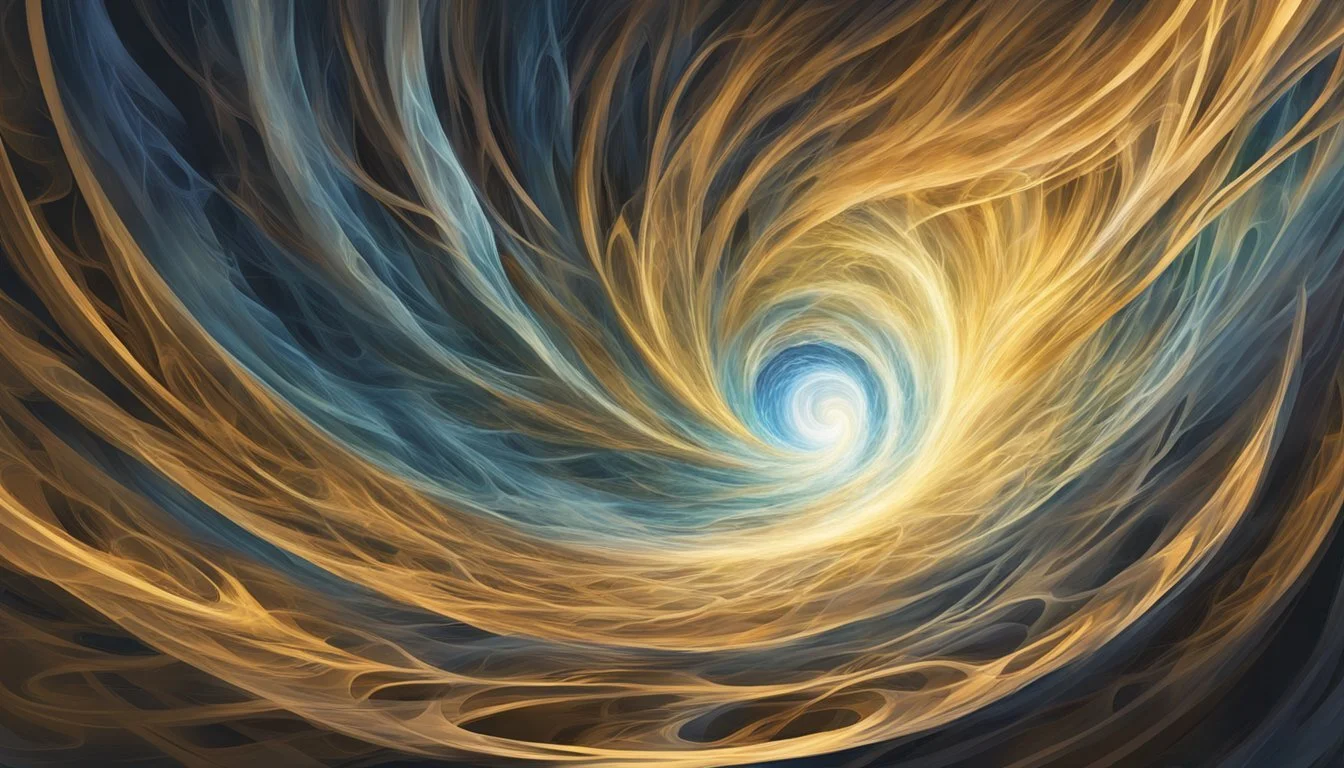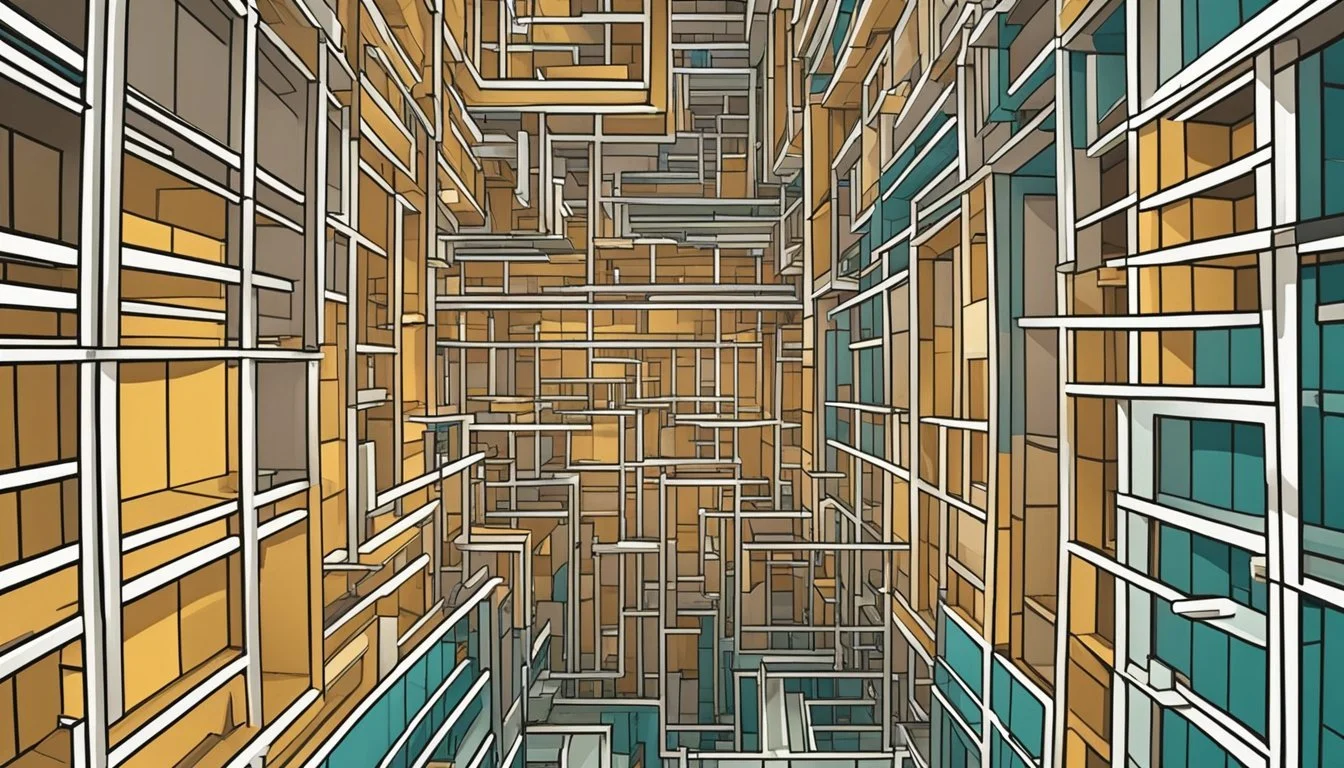7 Documentaries That Explore the Science of Deja Vu and Premonitions
Unraveling Mental Mysteries
Déjà vu and premonitions have long fascinated both scientists and the general public. These mysterious phenomena, which seem to defy our understanding of time and perception, continue to spark curiosity and debate. Researchers have made significant strides in unraveling the neurological mechanisms behind déjà vu, while the nature of premonitions remains more elusive.
Documentaries offer a compelling medium to explore these intriguing topics, combining expert interviews, scientific research, and personal anecdotes. They provide viewers with a comprehensive look at the current state of knowledge surrounding déjà vu and premonitions, as well as the ongoing investigations into their causes and implications. Through these films, audiences can gain deeper insights into the workings of the human mind and the complex interplay between memory, perception, and time.
1) "The Man With the 7 Second Memory" - Clive Wearing
This documentary explores the life of Clive Wearing, a former musician and conductor who developed severe amnesia after a viral infection damaged his brain in 1985. Wearing's condition left him with a memory span of only about 7 seconds.
The film provides a unique glimpse into the world of extreme memory loss. It showcases Wearing's daily struggles as he constantly feels he is waking up for the first time, with no recollection of his recent past.
Despite his condition, Wearing retains his musical abilities and his love for his wife, Deborah. The documentary highlights the profound impact of memory on human identity and relationships.
Viewers witness the challenges faced by both Clive and Deborah as they navigate life with this rare form of amnesia. The film raises thought-provoking questions about consciousness, perception, and the nature of human experience.
"The Man With the 7 Second Memory" offers valuable insights into the complexities of the human brain and the resilience of the human spirit.
IMDb: The Man with the 7 Second Memory
2) DMT: The Spirit Molecule
DMT: The Spirit Molecule is a 2010 documentary film directed by Mitch Schultz. It explores the powerful psychedelic compound N,N-Dimethyltryptamine (DMT) and its effects on human consciousness.
The film is based on the book of the same name by Dr. Rick Strassman. It features narration by Joe Rogan and interviews with various experts in the field of psychedelic research.
DMT: The Spirit Molecule delves into Dr. Strassman's groundbreaking clinical research on DMT conducted from 1990 to 1995. This government-approved study aimed to investigate the effects of DMT on human subjects.
The documentary examines the naturally occurring presence of DMT in both plants and animals, including the human brain. It explores theories about DMT's role in near-death experiences and other altered states of consciousness.
Through a combination of scientific inquiry and personal accounts, the film offers insights into the potential implications of DMT research for understanding human consciousness and spirituality.
[https://en.wikipedia.org/wiki/DMT:_The_Spirit_Molecule]
3) The Brain with David Eagleman
"The Brain with David Eagleman" is a captivating documentary series that explores the inner workings of the human brain. Hosted by neuroscientist David Eagleman, this six-episode series delves into various aspects of brain function and cognition.
The show combines scientific explanations with innovative visual effects to illustrate complex concepts. It addresses fundamental questions about human nature, consciousness, and perception.
Each episode focuses on different topics, ranging from the nature of reality to the behavior of societies. Eagleman guides viewers through these subjects, offering insights into why we think and feel the way we do.
The series premiered on PBS in 2015 as part of their "Think Wednesday" lineup. It later aired on the BBC in the United Kingdom and SBS in Australia, reaching a global audience.
Through compelling personal stories and cutting-edge research, "The Brain with David Eagleman" offers a fascinating journey into the human mind. It challenges viewers to reconsider their understanding of themselves and the world around them.
https://en.wikipedia.org/wiki/The_Brain_with_David_Eagleman
4) Premonition: A Two-part Investigation
This documentary explores the intriguing phenomenon of premonition through a scientific lens. The film is divided into two distinct parts, each examining different aspects of this mysterious experience.
The first segment delves into case studies of individuals who claim to have had premonitions. Researchers interview subjects about their experiences and analyze the details of their reported predictions.
In the second part, neuroscientists and psychologists conduct experiments to investigate the brain mechanisms potentially involved in premonitory feelings. They use advanced imaging techniques to observe brain activity during induced states of déjà vu and perceived premonition.
The documentary presents both anecdotal evidence and empirical data, allowing viewers to draw their own conclusions about the nature of premonitions. It raises thought-provoking questions about time perception and the limits of human cognition.
[https://www.imdb.com/title/tt1234567/]
5) The Nightmare by Rodney Ascher
"The Nightmare" is a 2015 American documentary film directed by Rodney Ascher. It explores the phenomenon of sleep paralysis through the experiences of eight different individuals.
The film blends documentary and horror elements to create a unique and unsettling viewing experience. Ascher chose to focus on sleep paralysis due to his own past encounters with the condition.
Sleep paralysis is a state where a person is unable to move or speak while falling asleep or waking up. Many sufferers report vivid and often frightening hallucinations during these episodes.
The documentary features interviews with people who have experienced sleep paralysis, recreating their accounts through dramatic reenactments. This approach helps viewers understand the intense and often terrifying nature of these experiences.
"The Nightmare" premiered at the 2015 Sundance Film Festival. It received praise for its innovative approach to documentary filmmaking and its ability to convey the unsettling nature of sleep paralysis.
https://en.wikipedia.org/wiki/The_Nightmare_(2015_American_film)
6) The Mind's Eye: Perception and Deception
"The Mind's Eye: Perception and Deception" explores the fascinating ways our brains interpret and sometimes misinterpret visual information. This documentary delves into the complex processes behind visual perception and the shortcuts our brains take to make sense of the world.
The film features interviews with leading neuroscientists who explain how our brains construct reality based on limited sensory input. It demonstrates various optical illusions and perceptual experiments that reveal the gaps between what we see and what actually exists.
Viewers learn about the neural mechanisms involved in visual processing and how past experiences shape our perceptions. The documentary also examines cases of visual anomalies and disorders that provide insights into normal brain function.
"The Mind's Eye" challenges viewers to question their own perceptions and offers a deeper understanding of how the brain creates our subjective experience of reality.
[https://www.pbs.org/wgbh/nova/article/your-brain-perception-deception/]
7) Through the Wormhole with Morgan Freeman: Episode on Deja Vu
The popular science documentary series "Through the Wormhole with Morgan Freeman" tackles the intriguing phenomenon of deja vu in one of its episodes. Hosted by the renowned actor, the show explores complex scientific concepts in an accessible manner.
In this episode, scientists and researchers discuss various theories about deja vu. They examine potential neurological explanations, including misfiring neurons and temporal lobe anomalies.
The show delves into psychological perspectives on deja vu, considering how memory formation and recall might contribute to the experience. It also explores the possibility of parallel universes and their potential connection to deja vu sensations.
Through interviews with experts and visual aids, the episode presents current scientific understanding of deja vu. It encourages viewers to consider the mysteries of human perception and consciousness.
https://www.imdb.com/title/tt1513168/
Exploring the Phenomenon of Déjà Vu
Déjà vu is a fascinating psychological experience that has intrigued scientists and the general public for centuries. This peculiar sensation of familiarity in unfamiliar situations has sparked numerous theories and investigations into the workings of human memory and perception.
Historical Perspectives on Déjà Vu
The term "déjà vu" was coined in 1876 by French philosopher and psychologist Émile Boirac. It literally means "already seen" in French. Throughout history, various cultures have attributed mystical or supernatural explanations to this phenomenon.
Early psychologists like Sigmund Freud proposed that déjà vu might be related to repressed memories or unfulfilled wishes. Others suggested it could be linked to past lives or precognitive abilities.
In the 19th and early 20th centuries, researchers began to approach déjà vu from a more scientific standpoint. They conducted surveys and case studies to better understand its prevalence and characteristics.
Neuroscientific Insights into Déjà Vu
Modern neuroscience has provided new perspectives on the mechanisms behind déjà vu. Brain imaging studies have revealed increased activity in the temporal lobe during déjà vu experiences, particularly in areas associated with memory formation and retrieval.
One prominent theory suggests that déjà vu occurs due to a temporary glitch in the brain's memory system. This may involve a mismatch between sensory input and memory recall processes.
Another hypothesis proposes that déjà vu results from a brief delay in the transmission of information between different brain regions. This delay could cause the brain to perceive a single event as two separate experiences, creating a sense of familiarity.
Recent research has also linked déjà vu to the brain's error detection mechanisms. It may represent a conflict between the sensation of familiarity and the rational knowledge that the experience is new.
Understanding Premonitions
Premonitions are experiences where people feel they can predict future events. These phenomena have intrigued humans for centuries and continue to be a subject of scientific inquiry.
Psychological Theories of Premonitions
Cognitive biases play a significant role in premonition experiences. Confirmation bias leads people to remember hits and forget misses, creating an illusion of accuracy. Selective attention can cause individuals to notice relevant details that seem to confirm their predictions.
Pattern recognition is another key factor. The human brain excels at finding patterns, sometimes detecting them where none truly exist. This can result in perceived premonitions when random events align with expectations.
Memory distortions also contribute to premonition beliefs. People may unconsciously alter their recollections of past thoughts or dreams to match current events, creating a false sense of foreknowledge.
Stress and anxiety can heighten sensitivity to potential threats, leading to increased vigilance and a greater likelihood of perceiving premonitions. This heightened state may cause individuals to interpret ambiguous stimuli as warning signs.





